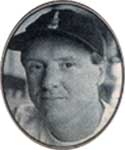
THURSDAY, JULY 6,1995
|
Rick Roth aids exploited children BY CATHERINE HEINS Special to the Journal  "You have to use your talents and resources to make the world a better place," says Rick Roth, coordinator for Amnesty International's Group 133, based in Somerville and Arlington. Thirteen years ago, Roth joined Amnesty International, writing letters and hoping at least to "make a difference in one person's life." Since then, he has taken up the causes of a persecuted Guatemalan labor leader, exploited child laborers in Pakistan, and even publicly debated a Guatemalan general accused of human rights violations. Roth has even found a way to make the silkscreening business he started in his basement seven years ago work for Amnesty and other causes. Mirror Images Inc., which employs 30 people, designs and distributes all of Amnesty's merchandise in the United States. It also provides T-shirts at reduced rates to local youth groups and non-profit organizations like Oxfam America. When offered a lucrative contract for a Desert Storm T-shirt that he felt celebrated violence, he turned it down. After an assassination attempt on Guatemalan union leader Jose Sotz injured his 3-year-old son Jose, Roth coordinated a fund-raising drive to bring the son to the United States for medical treatment. Since little Jose sported a Red Sox cap, Rick arranged to introduce him to Luis Riviera, Tony Pena, and the whole Red Sox team. Roth "took the ball and ran with it," Group 133 cooeague Carl Williams said, eventually garnering enough media attention to have Sotz introduced in the Massachusetts Senate and the U.S. House of Representatives. When the boy returned to Guatemala and received a Christmas card containing another death threat, Roth's group sold T-shirts, worked as movers, and raised $30,000 to bring the Sotz family to the United States. |
Jose Sotz now works at Mirror Image and received his official asylum from the goverment two weeks ago. His son, who must use a wheelchair for the fest of his life, is 12 and attends Cambridge schools. Correspondence ended up giving Roth an opportunity to debate General Gramajo at Tufts' Fletcher School of Diplomacy. The general, currently being groomed to be the new leader of Guatemala, recently lost an international lawsuit concerning civil rights violations. Suddenly Roth wasn't just writing letters. He had to develop expertise in foreign affairs and public speaking. Fatherhood only reinforced Roth's sense of responsibility. "If your kids see you doing something decent for the world, that's a good message to give them," said Roth, who had lived in Somerville for 19 years. His daughters are all activists in their own right, and much of the time he spends with them revolves around various Amnesty projects. Hope, 13, the eldest, spoke in opposition to the death penalty at a rally of 600 people, when she was just 11. Allison and Christine, 11-year-old twins, write letters frequently to Congress to support or challenge actions on human rights and environmental issues. Having children has encouraged Roth to seek more ways to get kids involved in human rights. Iqbal Masih, 12, a former Pakistani child laborer who won the Reebok Youth in Action Award, had visited seventh graders at Quincy's Broad Meadows Middle School and described the plight of young bonded laborers in the rug industry.. When the boy was gunned down in Pakistan, the outraged students determined to raise money to build a school in his home village. When he heard about it, Roth, his doughter Hope and Amnesty volunteers brought a van full of computer equipment to the school and spent the day teaching the students how to use the World Wide Web to take their publicity campaign world-wide on the Internet. "What Rick Roth did was superb. He heard young voices attempting to take on a very difficult issue, child labor, across the ocean, and he helped them," said teacher Ron Adams, "He brought them the technology that would allow their message to travel across the world." |
Adams describes how the students "watched in awe as their compaign was uploaded into cyberspace." After just three weeks, the Web page has generated a response not only from individuals, but from schools from Connecticut to California that are raising money. When a student drew his attention to a photo of Iqbal and Michael Stipe, Roth arranged to set up a table at REM's sold-out Great Woods concerts. In just three nights, Broad Meadows students, Roth, and his daughters distributed over one thousand flyers and collected several hundred dollars for the campaign. The students have also written to Prime Minister Benazir Bhutto, and Sen. Edward Kennedy, who has promised to bring the matter up with Bhutto personally. Roth estimates that he spends from 10 to 25 hours a week on Amnestly work. Williams puts the figure at around 40. The Somerville group's membership has tripled in the last two and a half years, Williams estimates. He attributes this growth to Roth's casual, yet professional style. (Roth accompanied Sotz to meet with the governor in a T-shirt). Williams puts in about 20 hours a week coordinating Amnestly's student groups in the Boston area, including one recently founded at Somerville High School. Without Roth's leadership as a role model, he doubts whether he'd have been able to do it. He adds that he can easily come up with another half-dozen members for whom Roth has served as such an inspiration. The members of Group 133 are a real reflection of the community, Roth says. He considers this cultural, racial, and professional diversity to be one of the group's greatest strengths. "We all had to learn in order to get done what we wanted to get done," he said. "None of us have special talents. We've really been driven by motivation." Somerville is one of the five most active of Amnesty's 400 to 500 community groups. 
|
All material designed and copyrighted by
Questions or problems to report about this web site? Contact the Webmaster at webmaster@mirrorimage.com